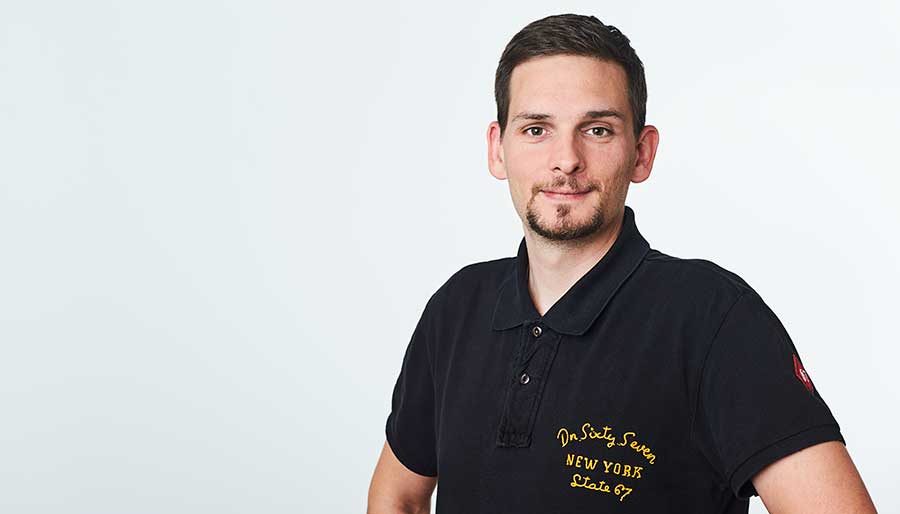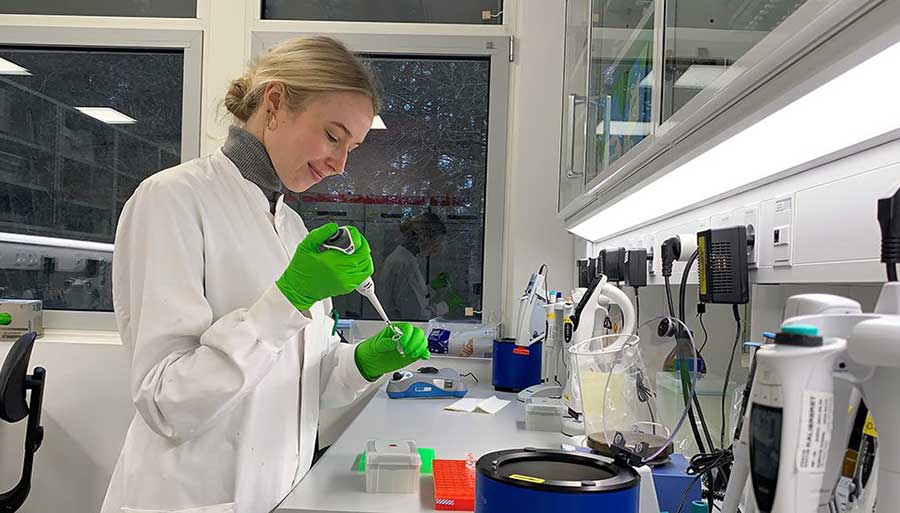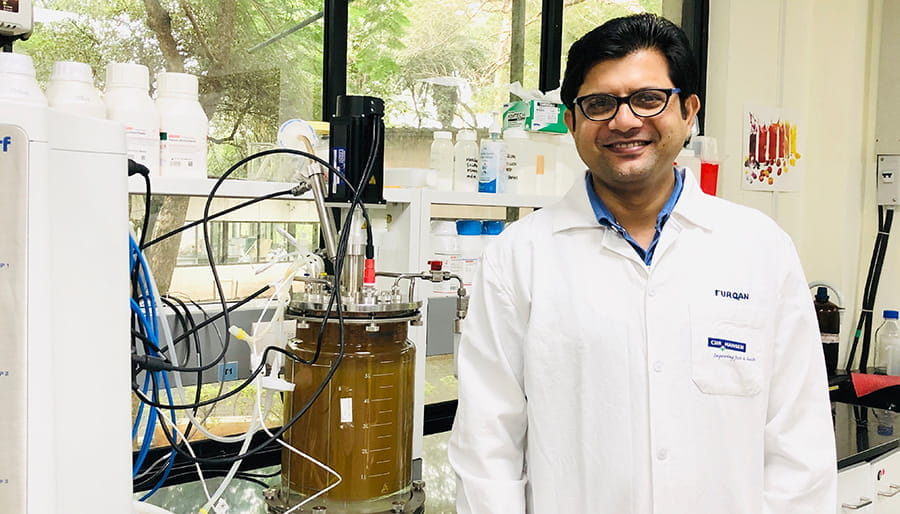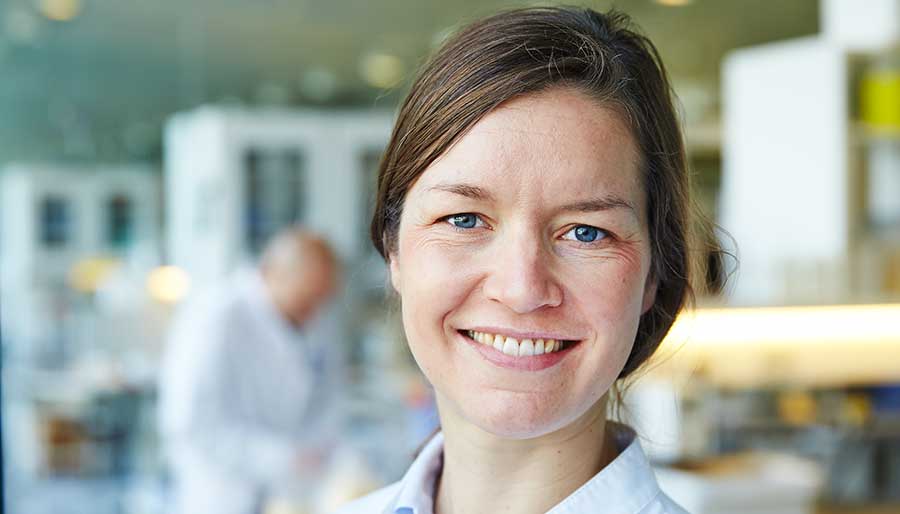
Geoffrey Ras
Development Scientist in the Combi team in Culture Development in Chr. Hansen. Was connected to University Clermont Auvergne in France during his PhD.

Peter Westergaard Jakobsen
Research Scientist in R&D Analytical Solutions in Chr. Hansen. Worked for DTU Department of Chemistry as PhD, postdoc and researcher.
Myth: “The quality of academic science supersedes the quality of industry science” – true or false?
Geoffrey: False. As we focus on different issues, the approaches used are naturally different. Both academia and industry provide quality results.
Peter: False. While the success criteria for the two fields are vastly different, I believe academia and industry just push the frontiers of science in different areas. In the industry, you stop when you have reached the level of information needed to deliver the best possible product. In academia, you can choose to push your research closer to the limit of what is possible, so in that regard you can say the quality of academic research supersedes industrial research. However, academic findings are rarely exposed to the level of scrutiny that industrial research is, e.g. being tested in vastly different environments and scales all across the globe. So in terms of robustness, I would say the quality of industrial research will often be superior.
Is it true that you never get to contribute to the scientific field when working in the industry? (Publishing articles etc.)
Peter: Not necessarily. In Chr. Hansen it is actively encouraged, but the publications will often take on a different form than a journal article. Naturally, there is more secrecy in the industry, and you cannot publish results that reveal a competitive edge. In some cases, however, you are able to publish work from university collaborations or curiosities that you have found out on your own, if you wish to.
Geoffrey: It depends. In academia it is essential to publish results to value your work and to help evolve in your career as well as getting funds. As the industry is more product-oriented, any finding with high interest will be turned into a patent rather than a scientific paper and be valued internally.

Is it true that you only work with people in the same field as yourself?
Geoffrey: No. Every project and every success at Chr. Hansen is the result of a genuine and fruitful collaboration with colleagues from both the same department and across departments.
Peter: Absolutely not! In R&D Analytical Solutions we have close collaborations with most departments in the organization – from Strain Discovery over IT to Sales and Production. Collaborating with people with different backgrounds constitutes an interesting challenge in how you communicate your needs and results.
In your opinion, what are the biggest differences between working in academia vs. in the industry?
Peter: I think one of the biggest differences is how a whole organization is working together towards a common goal in the industry, compared to being reliant on oneself or a very small team to achieve success in academia. Another big difference is that in the industry the problem, and the timeline, is largely decided for you. In academia, you have more freedom when choosing projects and their timeline.
Geoffrey: There are many differences. Generally, the industry is more product-driven while academia is more explorative in relation to mechanisms, mode of action etc. In other words, the industry is oriented towards something functional, while academia is oriented towards fundamental knowledge.
Why did you want to work in the industry? What was appealing to you?
Geoffrey: Personally, I was attracted by the fact that in the industry, you can focus on applied science. Being a scientist within the academic world is getting tougher and tougher, and you spend a substantial amount of your time applying for funds. What is appealing to me in the industry, especially at Chr. Hansen, is the opportunity to do what you do best – designing your experiment, conducting the task and analyzing data. It also seems to me that your career can evolve faster in the industry than in academia.
Peter: To me, using cutting-edge science to solve problems, preferably in collaboration with others, is the primary reason why I work in research. I feel like I can satisfy this need for problem solving in the industry while developing my management and collaboration skills further. Who defines the problem, and on what grounds, is less important to me.
What are the possibilities for someone with a PhD in Chr. Hansen?
Geoffrey: The perspectives of development within the company are exciting. You can express your scientific-oriented mind in your daily life. You can climb the scientific path – from scientist to senior scientist and higher, or you can also choose to move to the management path, either team manager, project management or others alike.
Peter: As a Chr. Hansen employee, I feel like you are able to pursue your goals and maximize your talents regardless of educational background. Most scientists and managers in R&D have a PhD, but we also have managers with different educational backgrounds such as lab technicians. With respect to the possibilities when you have a PhD, there are plenty. You can become a part of top-level management, you can become THE specialist of an area of expertise or anything in between depending on your motivation and competencies.



